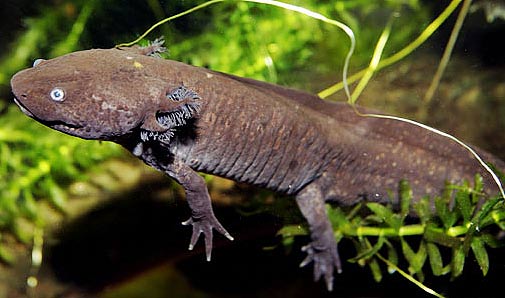A convent of Mexican nuns is helping to save the one of the world’s most endangered and most remarkable amphibians: the axolotl, a truly bizarre creature of serious scientific interest worldwide and an animal of deep-rooted cultural significance in Mexico.
The Sisters of Immaculate Health rarely venture out of their monastery in the central Mexican town of Patzcuaro. Yet they have become the most adept and successful breeders of their local species of this aquatic salamander. Axolotls are able to regrow lost limbs and other body parts. As a result, the aquatic salamanders are of great interest to researchers worldwide who study them in the hope of imitating the trick: to grow tissues and organs for medicine. The nuns also began to breed and rear their axolotls for medical reasons. They use the salamander as the key ingredient in an ancient Mexican remedy for coughs and other respiratory illnesses. Scientists marvel at their axolotl-breeding talents and are now working with them to save the animal from extinction.
In a new radio documentary, BBC News science correspondent Victoria Gill is allowed into the convent to discover at least some of the nun’s secrets and explores why axolotls are a group of salamanders so important to protect from evolutionary oblivion. Yet she is following in footsteps.
In 2003, DICE MSc student Jeanne McKay was one of the first researchers outside Mexico to visit the convent of the Sisters of Immaculate Health. This was part of a wider project to develop an action plan for axolotl conservation, already nearly extinct in the wild. Interviewed by the BBC fifteen years later, Professor Richard Griffiths discusses the plight of the axolotl whilst DICE alumnus Dr Gerardo Garcia, Chester Zoo’s curator of amphibians, describes the unique contribution that the nuns are now making to the conservation-breeding of this highly threatened species.
The documentary was aired on 6th June, 2018, and can be listened to here.

